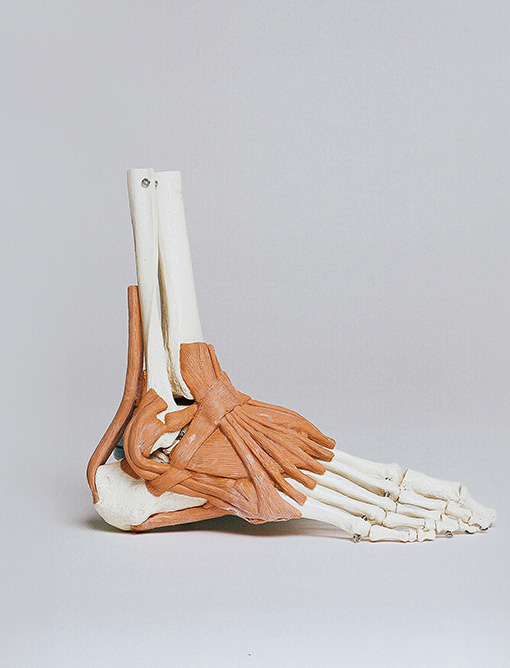Immunotherapy
How Immunotherapy for Cancer Works
For many types of cancer, immunotherapy, sometimes called biologic therapy, has been a game changer. Why? It could improve your life and extend your years far longer than other treatments.
What Is Immunotherapy?
If you have bad allergies, you may have gotten allergy shots for the sniffles and red eyes. Each shot had a very small amount of the allergen -- the thing that caused your problems.
The shots put your immune system on alert, but they didn’t make you sick. Over time, your doses got bigger. That helped you build a tolerance to the allergen.
In other words, you became immune.
Those allergy shots were a type of immunotherapy. So are vaccines for diseases like measles and mumps.
How does that relate to cancer?
The disease starts when one cell in your body goes rogue. Researchers hope immunotherapy treatment will harness the power of your body’s natural defenses to fight cancer cells, just like it would with a germ, virus, or allergy.
One approach is to tell your system to stage a full-out assault on cancer cells. Another is to try to make your defenses stronger.
What Are the Types of Cancer Immunotherapy?
Researchers are exploring many ways to help your immune system recognize and destroy cancer cells.
Adoptive T-Cell Immunotherapy
This is designed to boost your key immune cells. Basically, researchers remove T cells (white blood cells in your immune system) from your tumor, then figure out which ones are fighting the growth the most. Once that’s known, scientists genetically engineer the genes in those cells to be stronger and return them to your system through an IV.
This approach shows a lot of promise in the treatment of many different types of cancer.
Car T-cell therapy:
Car T-cell therapy is a type of adoptive T-cell immunotherapy. This treatment is sometimes used to treat acute lymphoblastic leukemia in children and young adults and certain types of B – cell lymphoma in adults that haven’t gotten better with other treatments.
Cancer vaccines work like many others. They generally fall into two groups:
Preventive vaccines have a lot in common with traditional types. Both work with a substance called an antigen, which gives your immune system a nudge. A preventive cancer vaccine is used against the human papillomavirus (HPV). That causes cervical, anal and other types of cancer.
Treatment vaccines try to help your T cells pick out and destroy specific cancers. Shots can also be designed to increase the number of antibodies (cells that destroy invaders) in your system. For example, a treatment vaccine for advanced pancreatic cancer is being studied in clinical trials.
Checkpoint Inhibitors
Our immune system has a set of brakes -- or checkpoints -- that stop it from killing healthy cells.
Sometimes, cancer cells take advantage of this and hide from your defense, almost disguising themselves as normal cells. That way, your system doesn’t see the cancer cell as an invader.
These drugs help your immune system see the cancer as a problem, and fight it.
Checkpoint inhibitors are in clinical trials for many different cancers. Some people with metastatic melanoma, lung, bladder, kidney, head and neck cancer and Hodgkin’s lymphoma are being treated with them.
Monoclonal antibodies are molecules made in a laboratory. These antibodies are designed to recognize and attack cancer cells.
Your immune system is good at spotting things that can cause harm, but it doesn’t always see cancer cells as bad news.
Monoclonal antibodies help you mount an offense. They attach to cancer cells. Then, like a beacon, they make those cells more visible to your immune system, so it can fight them better.
Some monoclonal antibodies can have chemotherapy drugs or radioactive substances attached to them and can help stop the growth of cancer cells.
These molecules treat many different types of cancer. Researchers are studying their possibilities for treating many more.
What’s the Future of Immunotherapy?
Researchers are trying to find ways to help your immune system fight cancer, and to better understand your defenses and how they protect you.
Science is also looking at how to combine immunotherapy with other treatments to make them work even better. Researchers are even looking into what happens when you pair two types of immunotherapy.
One big question that still remains: Why does this -- like traditional treatments -- work for one patient, but not another?
Click here for Download pdf of patient information
Click here for Download pdf of prescribing information

Cytarabine Uses
This medication is usually given by injection into a vein by a health care professional. It may also be given by other methods of injection depending upon your medical condition.

Cytarabine Side Effects
Nausea, vomiting, loss of appetite, diarrhea, headache, dizziness, and pain/swelling/redness at the injection site may occur. Nausea and vomiting can be severe.

Cytarabine Precautions
Using cytarabine, tell your doctor or pharmacist if you are allergic to it; or if you have any other allergies. This product may contain inactive ingredients, which can cause allergic reactions or other problems.
For Free & Detailed solution: Contact our Experts 24/7
Our Services
Cytarabine is used to treat various types of cancer. It is a chemotherapy drug that works by slowing or stopping cancer cell growth.
We would like to give you an overview of Taj Pharmaceuticals: our background, organization, products, core belief and prospects.
This section displays common question about the Cytarabine Solution for injection or Infusion.
Cytarabine Image Gallery





